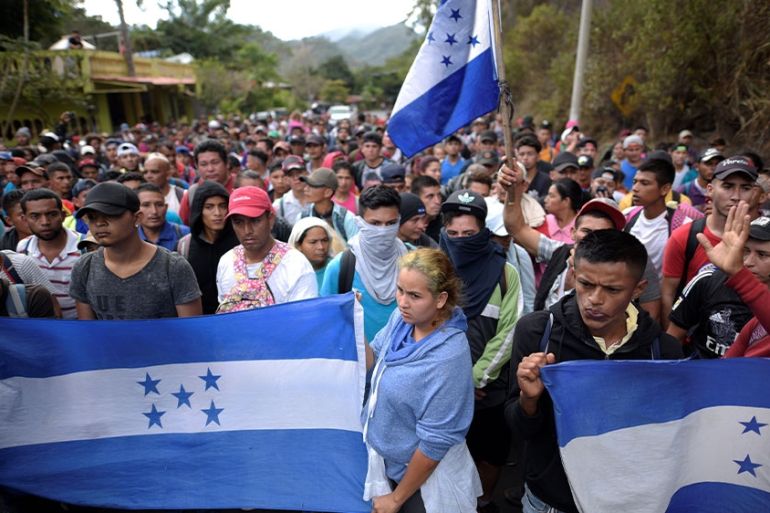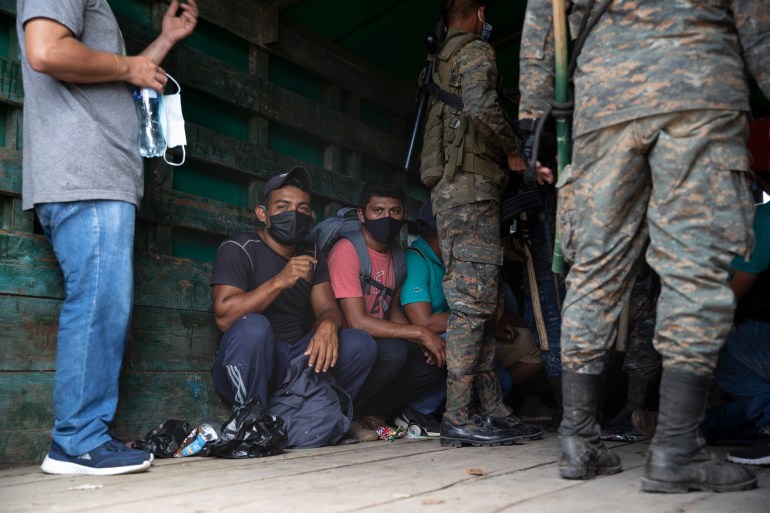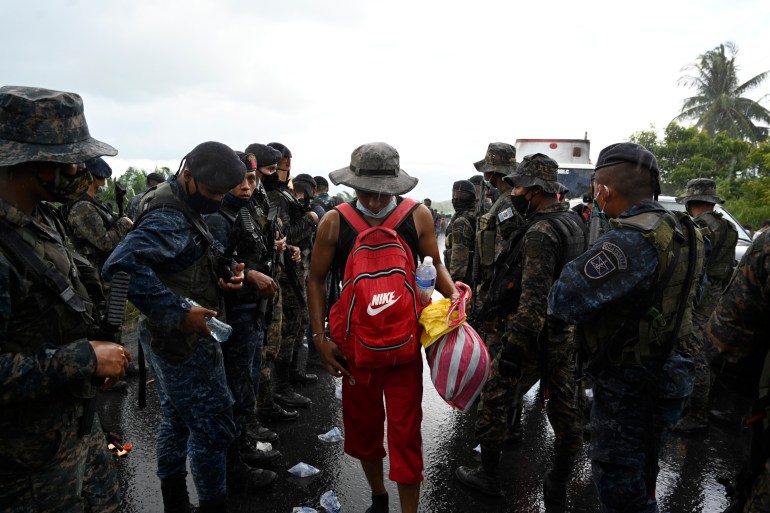Guatemala to verify report on US agents ‘unauthorised’ operation
Guatemala seeks to verify US Senate committee report which alleges DHS personnel engaged in ‘unauthorised’ operation.

Guatemala City, Guatemala – The Guatemalan government has announced it would launch a process to verify and analyse a report by a United States Senate committee, which alleged that US Department of Homeland Security (DHS) personnel engaged in an “unauthorised” operation in Guatemala, rounding up Honduran migrants.
Released on Tuesday by Democrats on the US Senate’s Foreign Relations Committee, the report (PDF) entitled: DHS Run Amok? A Reckless Overseas Operation, Violations, and Lies, alleges the misuse of US government funding and violations of norms and laws during a crackdown on migration through Guatemala in January 2020, targeting a caravan of Honduran migrants seeking to reach the US.
Keep reading
list of 4 itemsCyprus suspends asylum applications for Syrians as arrivals rise
Agadez, Niger’s gateway to the Sahara, finds new life in the migrant trade
Forced from home, these Colombians struggle to live in a basketball stadium
It alleges that US Customs and Border Patrol “personnel in Guatemala transported an unidentified number of Honduran migrants in unmarked vans to relocate them to the Guatemala-Honduras border”.
In doing so, the DHS violated an agreement between it, the US State Department and Guatemala that stated: “US personnel under this agreement will not conduct immigration or law enforcement operations; they are in-country for mentoring, advising and capacity-building purposes only,” according to the report.
The report argues that the DHS “has assumed unprecedented influence over US bilateral relations with Guatemala, simultaneously imposing its policies on the Guatemalan government and undermining the State Department’s traditional role as the principal steward of US foreign policy”.
In January 2020, over 2,000 Honduran migrants and asylum seekers had attempted to reach the US before many were blocked and detained by Mexican Immigration officials and the country’s National Guard.
The caravan and DHS operation occurred just weeks after the change of government in Guatemala, with Alejandro Giammattei taking office as president on January 14.
The press secretary for the office of the Guatemalan president said that the report is a US matter.
“It is an internal matter between US agencies that we understand the US Senate Foreign Relations Committee is investigating,” Francis Masek, presidential press secretary for the Guatemalan administration, told Al Jazeera.
The Guatemalan government announced on Wednesday that the Ministry of Foreign Relations, Migration Institute, and Office of the Attorney General would be included in its verification process.
The Guatemalan National Civilian Police (PNC) are also currently analysing what occurred in January, according to Jorge Aguilar, the spokesperson for the PNC, who declined to comment further.

Condemnation
Advocates for migrant rights condemned the allegations made in the report.
“This report emphasizes the ways that Customs and Border Protection has usurped the roles of the State Department in Central America,” Aaron Reichlin-Melnick, a lawyer and policy counsel with the American Immigration Council, told Al Jazeera.
“What this shows is that CPB is intent on controlling all migration-related diplomacy in the region, regardless of what the State Department believes is helpful for US diplomatic relations,” he said.
“And that CPB is willing to violate agreements with the State Department and expose the US Government to potentially serious legal consequences in order to establish its strength in the region and accomplish its goal of preventing Central Americans from travelling to the United States.”
Former Guatemalan officials also condemned the DHS actions detailed in the report.
“This is an usurpation of functions of Guatemalan authorities in terms of migration,” Carlos Menocal, the former Guatemalan interior minister during the administration of Alvero Colom, told Al Jazeera.
Guatemala has maintained agreements with other countries of Central America, specifically Honduras, El Salvador and Nicaragua, which permit the entry of those citizens to its national territory. Menocal argues that the actions of the DHS violate these agreements and others.
“This action violates international treaties, agreements between [Central American] states, and particularly, illegal operations that were committed by institutions from the United States,” Menocal said. “From my understanding, there is no international treaty that permits another country to involve themselves in local immigration issues. This was an illegal action that violates international agreements.”

Increased presence
The DHS operations reflect an escalation of US migratory official presence in the region that began in at least 2012 with the formation of US-funded inter-agency border security task forces.
The year prior to the reported operation included the deployment of 89 DHS agents to Guatemala to work and train with Guatemalan police who form the Ports, Airports and Border Posts Division of the Guatemalan National Police.
For immigrant advocates, the reported participation of US immigration officials in an intensified crackdown in Guatemala on migrants from other Central American countries continues to reflect the history of international intervention in the region. This is especially clear after Guatemalan national police and military dismantled another caravan in October 2020.
“There is a submission of the government in Guatemala to that of the United States,” Juan Jose Hurtado, the coordinator of the Guatemalan migrant advocacy group Pop No’j, told Al Jazeera.
“We continue to be banana republics,” he explained. “This is the materialization of the construction of invisible walls. It is the forcing of a border.”